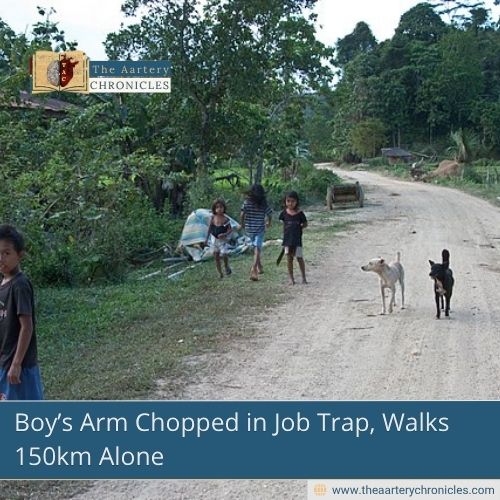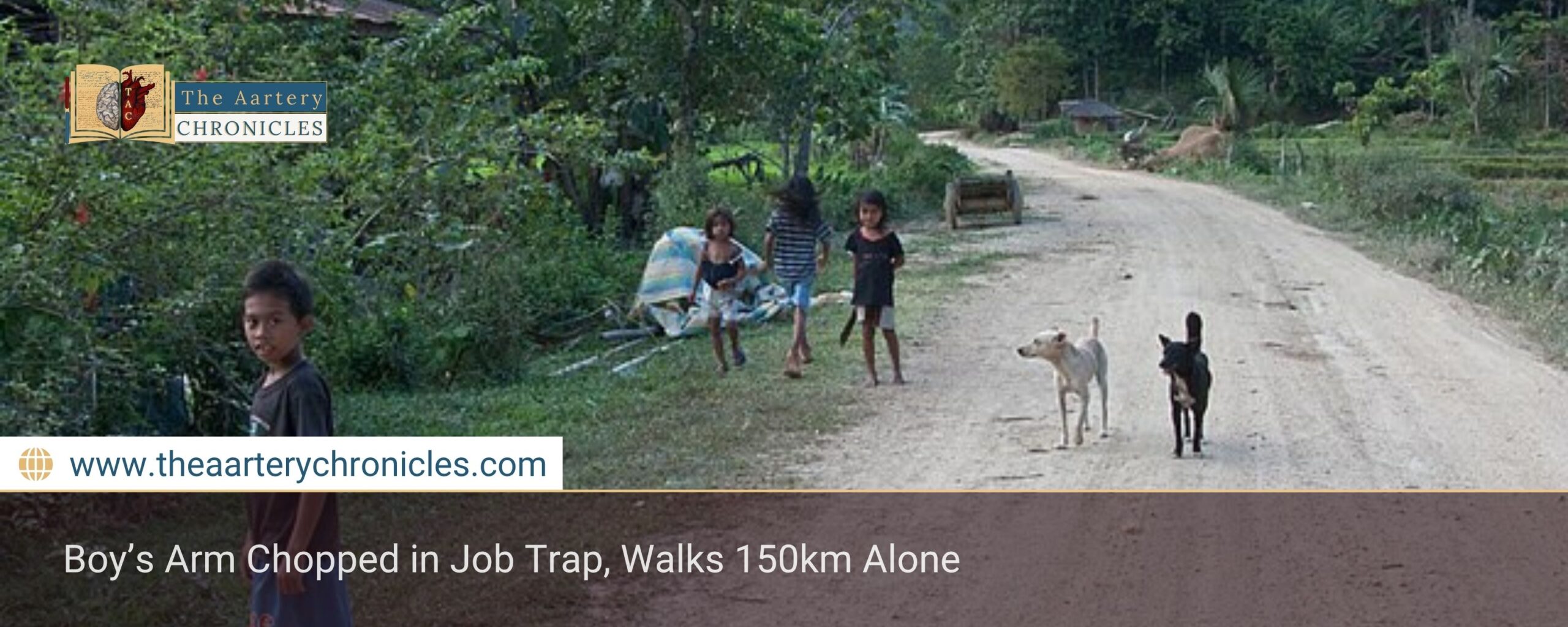

Boy’s Arm Chopped in Job Trap, Walks 150km Alone
A teenager from Kishanganj, Bihar, was lured to Haryana with the promise of a ₹10,000 monthly job. Instead of an opportunity, he found himself trapped, confined in a room, denied payment, fed poorly, and forced to work with dangerous machinery on a dairy farm in Jind. It was during one of these tasks, while feeding grass into a motorised fodder chopper, that his arm was tragically severed.
The Injury and Aftermath
Following the accident, the boy was given unidentified medication, likely a sedative, and left at a dispensary. When he regained consciousness, his belongings were missing, and he was told to leave. With no one to turn to and a bandaged stump, he began walking. His only goal is to get back home, over 1,000 km away.
Psychological Insights
1. Dissociation and Memory Gaps
The boy couldn’t recall exact dates or locations. This is common in individuals who’ve experienced acute trauma. Dissociation—a mental disconnection from reality—is the brain’s way of protecting itself from overwhelming stress or fear.
2. Hyperarousal and Survival Instinct
Despite his injuries, the boy’s determination to walk home reflects a heightened “fight or flight” response. In trauma psychology, this is called survival-driven hyperarousal—the body overrides pain and exhaustion to seek safety, even if logically unreachable.
3. Attachment and Orientation
He knew he needed to reach “Bihar,” even if he didn’t know how. This suggests his emotional compass was intact—his sense of identity and attachment to home served as a psychological anchor through the crisis.
4. Developmental Risk
At 15, the brain is still developing. Prolonged trauma at this stage can impair emotional regulation, trust-building, and self-worth. Without timely psychosocial intervention, the risk of long-term issues like PTSD, depression, or learned helplessness increases.
What Was Done and What’s Missing
Doctors treated his physical wounds, and he underwent surgery at PGIMS, Rohtak. But so far, no mention has been made of psychological counselling or trauma therapy.
Immediate steps are essential: refer the boy to a child psychologist or trauma counsellor for urgent assessment and support; involve a child protection officer to ensure systematic follow-up; ensure the police file a zero FIR without delay, and connect the family to legal aid. Multidisciplinary support should prioritise both psychological recovery and child rights protection.
Family Reaction
The boy’s family, despite their pain, declined to file a complaint, likely due to poverty, fear of retaliation, and mistrust of the legal system. Their focus was to bring him home safely. This is a common response among families with limited resources, and it underscores the importance of trauma-informed policing and support services.
Where the Gaps Lie
- No immediate trauma counselling at the point of rescue.
- No child welfare authority has been reported to be involved yet.
- No FIR filed, although police intend to pursue a zero FIR.
These gaps highlight a deeper issue: the system lacks holistic care, especially mental health support, for survivors of child labour and trafficking, despite acts of kindness.
Conclusion
This boy’s story is not just about survival; it’s a mirror reflecting the deep cracks in our child protection, healthcare, and mental health systems. He showed unimaginable courage. Now the responsibility lies with us to ensure his wounds aren’t just stitched but that his mind is healed, his rights are protected, and his childhood is restored.
Source: Inputs from various media Sources
I’m a pharmacist with a strong background in health sciences. I hold a BSc from Delhi University and a pharmacy degree from PDM University. I write articles and daily health news while interviewing doctors to bring you the latest insights. In my free time, you’ll find me at the gym or lost in a sci-fi novel.
- Priya Bairagi
- Health News and Updates,People Forum
- 1 August 2025
- 09:00








